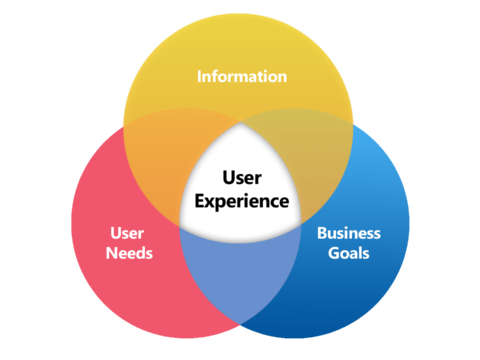
Maximizing Impact: Harnessing Salesforce for Marketing Campaign Success
April 25, 2024Salesforce, the world’s leading customer relationship management (CRM) system, is integral to over 150,000 companies globally. Yet, despite its widespread use, data loss remains a critical concern that can severely impact business operations.
While Salesforce is cloud-based, that does not inherently protect your data and metadata from loss.
In this article, you will learn:
- Key reasons why Salesforce data loss occurs.
- Best practices to prevent data loss in Salesforce.
- Effective solutions for Salesforce data backup and recovery.
As we delve into the essentials of Salesforce data management, we’ll explore how companies can safeguard their valuable information against potential threats, ensuring continuous protection and accessibility.
Why You Need to Backup Your Data
According to Arcserve Global Research, 43% of IT decision-makers believe cloud providers are responsible for data. While cloud services clearly offer increased protections and benefits, they are not fail-proof.
An ESG survey in 2023 found that 53% of respondents using SaaS applications reported suffering from lost or corrupted data in the past year.
Protect Your Salesforce Data & Meta Data
Without a proper data backup solution and strategy in place, your organization is exposed to unnecessary and heightened risks of losing both Salesforce data and metadata.
If this data loss happens, expect chaos as your teams simultaneously attempt to research potential recovery routes while trying to maintain normal sales functions.
Salesforce data includes everything from Accounts, Contacts, Leads, Opportunities, Cases, Contracts, custom object records, files, content, and Chatter.
Protecting metadata is also important. This includes all your Salesforce configuration settings, including your custom fields, dashboards, reports, page layouts and any custom code.
What About Salesforce Data Recovery Service?
In July 2020, Salesforce’s data recovery services were ended. This decision was made because the service did not meet their high standards for support and could take 6-8 months to complete without a guarantee of 100% data recovery.
The service was eventually restored in March 2021 as a needed emergency solution. However, Salesforce emphasized at the time that its AppExchange partners and third-party solutions provided more robust backup services that “go beyond the capabilities” of Salesforce’s native recovery option.
This development emphasizes the responsibility Salesforce customers must recognize in their own data management and security.
Understanding Salesforce Data Loss
Salesforce data loss can have severe consequences for businesses, impacting customer relationships, sales processes, and overall operations.
While Salesforce is a robust cloud-based platform, data loss can occur due to various reasons. Understanding these causes is crucial to preventing them and safeguarding valuable business information.
- Accidental Deletion: Human error is a leading cause of data loss in Salesforce. A simple misclick or incorrect data entry can lead to the accidental deletion of critical records. This risk is heightened when staff use uploads and downloads to manage information, which can result in overwriting or duplication.
- Process Mismanagement: Weak workflows and protocols can lead to data loss. Teams working in separate departments might unintentionally overwrite each other’s changes. Furthermore, salespeople on the road can overwrite data from their mobile apps, exacerbating the problem.
- Cyber Threats: Despite Salesforce’s high-security standards, no system is entirely immune to hacking. Cyber threats, malware, or unauthorized access can compromise data integrity.
- Technical Malfunctions: Hardware failures, software glitches, or network issues can disrupt Salesforce operations, leading to data loss.
- Software Development Risks: Developing new features or integrating third-party applications can delete objects or fields in Salesforce if not properly implemented.
Preventive Strategies for Salesforce Data Loss
Preventing data loss in Salesforce is essential for maintaining the integrity and security of your business’s critical data. Here are some best practices and strategies to minimize the risk of data loss:
Regular Data Backups
Establishing a routine for regular data backups is the cornerstone of any data loss prevention strategy. Salesforce offers manual backup options such as Data Export Service and Report Exports. These methods allow businesses to schedule and perform backups at regular intervals, ensuring that data can be recovered in the event of loss.
Robust Access Controls
Implementing strict access controls can significantly reduce the risk of accidental or malicious data loss. Limit administrative privileges to a few trusted users and define clear roles for all team members, ensuring that each person has access only to the data necessary for their job functions.
Enhanced Security Measures
Strengthening security measures can help protect your Salesforce data from cyber threats. Regular security audits, strong password policies, and two-factor authentication are critical components of a comprehensive security strategy.
Data Integrity Checks
Regularly performing data integrity checks can help catch errors or inconsistencies in your data before they lead to loss. Tools like Salesforce’s Data Quality Analysis Dashboards can provide insights into the health of your data and help maintain its accuracy and consistency.
Third-Party Backup Solutions: While Salesforce provides tools for data backup, relying solely on them may not be sufficient for all businesses. Third-party backup solutions offer additional security and flexibility, often providing more comprehensive options for data recovery and management.
By implementing these preventive measures, businesses can protect themselves against Salesforce data loss and ensure their data remains secure and recoverable.
What are your Salesforce Data Backup Solutions?
For Salesforce users, ensuring data safety means choosing between Salesforce’s native backup service, DIY backup solutions, and hiring a third-party professional service. Either approach has advantages and challenges, and ultimately, the best choice depends on a company’s specific needs and resources.
Salesforce’s Backup native tool
The Backup and Restore managed package is now called Salesforce Backup, per the company’s August 2023 release. You can learn more about the product here.
The service is available in Lightning Experience for Professional, Enterprise, Performance, and Unlimited Editions. It requires the Backup and Restore add-on subscription.
Manual DIY Salesforce Backup Solutions
Salesforce offers manual tools such as the Data Export Service and Report Exports. These allow users to schedule exports weekly or monthly and to generate backups of specific reports as needed.
- Data Loader: This tool provides more control, allowing users to manually export large volumes of data or specific database segments.
- Report Export: A simple export using the reports interface.
- Data Export Wizard: A user-friendly interface helps users schedule and manage data exports routinely in CSV file sets. You have 48 hours to pull the report before it disappears.
While manually backing up or exporting your data may sound sufficient, it is important to understand that weekly exports are essentially a download of each object into a spreadsheet. The spreadsheet has the IDs of related records, but when you restore Salesforce, it creates new IDs that have to be manually repaired by importing each object one by one. The more complex the Salesforce instance the longer it will take to recover.
| Pros | Cons |
| Control: Businesses maintain full control over the backup process and can customize it to fit their needs. | Intensive: What you may save in cost you’ll spend in time and technical resources and expertise — especially if there is a loss incident. |
| Cost: DIY options can help you avoid more spending, especially for small to mid-sized companies. | Risk: Manual processes are susceptible to mistakes, which can compromise data integrity. |
Third-Party Salesforce Backup Solutions & Recovery Services
Third-party providers, such as CRMNinjas, offer comprehensive backup services and software that include regular data backups, secure storage, and quick data restoration.
Salesforce recommends you employ a specialized third party for backups and restores. Look for data retention firms that offer full and incremental backups, and make sure that all your meta-data is backed up as well. Also, pay attention that you can restore either partial or complete data sets in the event of corruption or loss.
| Pros | Cons |
| Expertise: Third-party providers specialize in data backups, ensuring high standards of security and reliability. | Payments: While offering significant benefits, third-party solutions can be more expensive, especially for larger datasets. |
| Cost Efficiency: Outsourcing frees up internal resources and reduces demand on IT staff. | Less Control: May reduce some control over backup frequencies and specific data handling |
What’s Your Plan for Salesforce Data Loss?
Understanding the risks of data loss with Salesforce and implementing the right measures will significantly reduce the chances of data loss and its impact on your business.
- Recognize and Mitigate Risks: By identifying the common causes of data loss in Salesforce—such as human error, process mismanagement, and cyber threats—you can better prepare and protect your data.
- Implement Effective Backup Strategies: Whether choosing to subscribe to native backup services, DIY backup methods or outsourcing to third-party services, Salesforce data backup solutions and salesforce data recovery service are essential to ensure data security and recovery.
- Stay Informed and Prepared: Keeping abreast of best practices and new tools in data management can help you maintain a robust defense against potential data loss.
Salesforce Backup & Recovery Assurance through CRMNinjas
CRMNinjas, in partnership with SFApex, offers clients an advanced and efficient backup and recovery service that ensures the safety and integrity of your Salesforce data.
This partnership leverages the power of SFApex’s technology combined with CRMNinjas’ expertise in Salesforce management, known as administratio-as-a-ervice (AaaS) to offer a solution that not only protects your data but also enhances your operational resilience.
Reliable Salesforce Backup Solution
- Frequent Backups: Backups as often as every 15 minutes, for near real-time data security.
- AWS S3 Storage: Data is backed up into an AWS S3 bucket, a tool renowned for its durability, security, and scalability.
- Comprehensive Coverage: Ensures that your entire Salesforce suite is backed up — all data & metadata
Precision Recovery Features
Protected with SFApex, clients with CRMNinjas can pinpoint exact moments to restore. This is particularly valuable in scenarios where data integrity must be maintained following unexpected disruptions.
- Maintain Relationships: As data is restored, SFApex’s system automatically preserves all relationships within Salesforce records. This unique feature means that the relational data structure is maintained without additional input, preventing issues like duplicate records and ensuring continuity.
- Ad Hoc Backups: Before significant updates or deployments, ad hoc backups can be initiated, providing an extra layer of security by allowing for point-in-time snapshots that safeguard against potential deployment issues.
Interested in enhancing your Salesforce experience? Explore our CRMNinjas services further to ensure your data not only survives but thrives in the digital landscape.
Frequently Asked Questions
What is data loss in Salesforce?
Data loss in Salesforce refers to the unexpected disappearance or deletion of critical data within the Salesforce CRM platform. This can occur through accidental deletions, mismanagement of processes, cyber threats, technical malfunctions, or during software updates. Understanding and mitigating these risks are crucial to safeguarding your valuable information, ensuring continuous protection, and minimizing the severe impact data loss can have on business operations.
Does Salesforce have DLP (Data Loss Prevention)?
Salesforce provides several features that help prevent data loss, though it does not offer a traditional DLP (Data Loss Prevention) tool as part of its native offerings. However, Salesforce’s robust access controls, regular data backup options, and strong security measures function collectively to reduce the risk of data loss. Companies can also enhance their Salesforce data protection by implementing third-party backup solutions and customized data management strategies.
Can Salesforce restore data?
As of March 2021, Salesforce has reinstated its data recovery subscription service now known as “Salesforce Backup.“ For more robust backup and restoration needs, Salesforce suggests using third-party services that provide additional functionalities beyond Salesforce’s native capabilities.
Does Salesforce own your data?
No, Salesforce does not own the data you store on its platform. Customers retain ownership of their data. Salesforce’s role is to provide the infrastructure and services to manage and safeguard your data, adhering to best practices in security and compliance. However, the responsibility for managing and backing up this data effectively rests with the customer, particularly in ensuring it is protected against loss and corruption.
How do I deal with data loss in Salesforce?
Dealing with data loss in Salesforce effectively requires a proactive approach:
- Regular Backups: Use Salesforce’s Data Export Service and Report Exports to perform regular backups of your data.
- Implement Preventive Measures: Strengthen security measures, perform regular data integrity checks, and ensure robust access controls are in place.
- Consider Third-Party Solutions: For more comprehensive backup and recovery options, consider partnering with third-party services like CRMNinjas, which offer advanced backup technologies and expert management to ensure your Salesforce data is securely backed up and recoverable.




